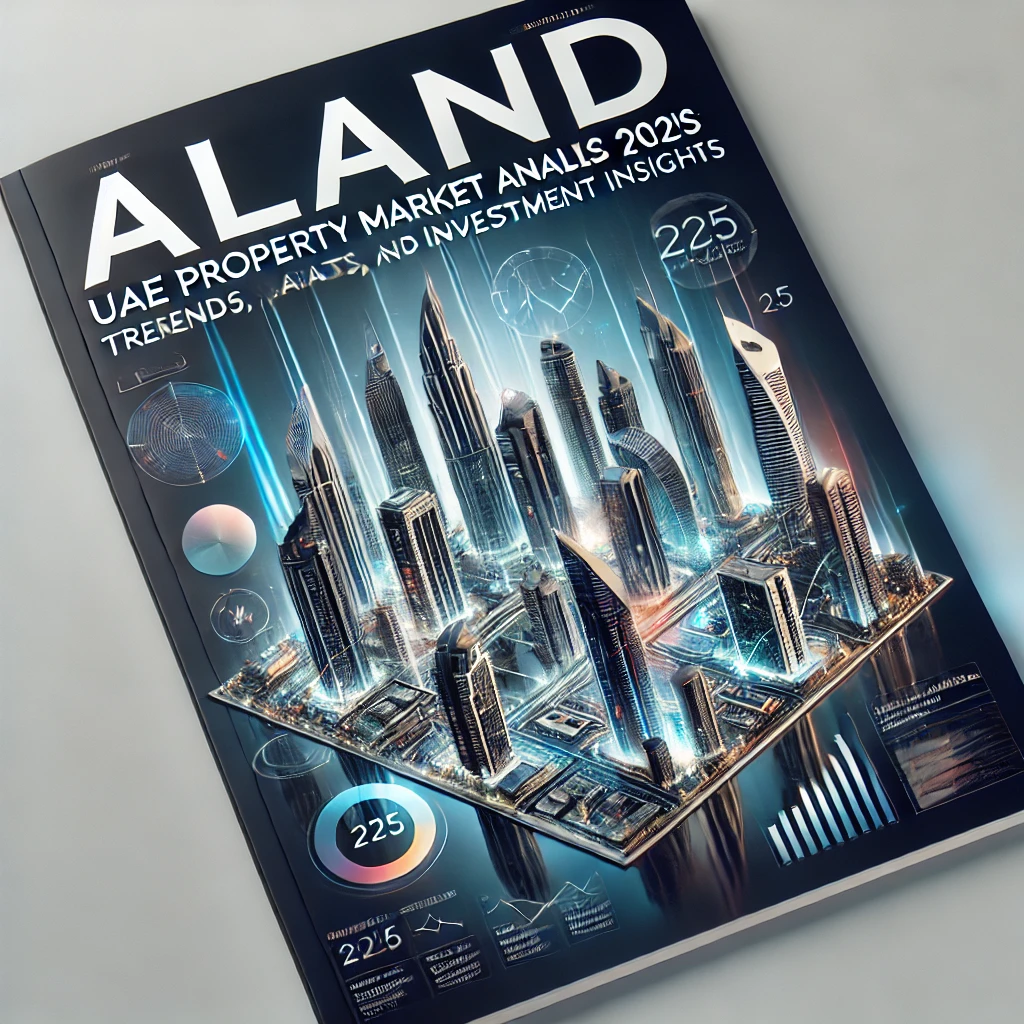UAE Property Market Analysis 2025: Trends, Forecasts, and Investment Insights
- Published Date: 18th Mar, 2025
-
5★ ★ ★ ★ ★(165)

You can listen to the ALAND Spotify podcast on this topic.
1. Sustained Demand for Luxury and Premium Properties
The UAE continues to be a magnet for high-net-worth individuals (HNWIs), particularly in Dubai and Abu Dhabi. Despite global uncertainties, the luxury segment of the market remains resilient, with demand for prime residential properties expected to rise. High-end developments in areas like Palm Jumeirah, Dubai Hills Estate, and Saadiyat Island are anticipated to see both strong rental yields and capital appreciation, driven by foreign investments and the continued influx of expatriates.
From a macroeconomic standpoint, global political stability and the UAE’s status as a business hub have fueled demand for high-end residential units. Investors are increasingly eyeing properties with unique features such as waterfront views, sustainable designs, and integrated smart technologies. This segment will likely dominate the market in 2025, providing lucrative opportunities for discerning investors.
2. Emerging Opportunities in Sustainable and Smart Homes
The UAE is stepping up its focus on sustainability in urban development, particularly in new master-planned communities. Investors are now eyeing projects that align with the UAE’s Green Agenda, which emphasizes energy efficiency, sustainable materials, and eco-friendly technologies. Areas like Dubai Sustainable City and Al Barari are seeing a rise in interest from both end-users and institutional investors.
Additionally, smart homes equipped with cutting-edge technology are becoming a crucial selling point in the market. The integration of artificial intelligence (AI), smart sensors, and automation systems adds significant value to properties. As a Swiss economist and real estate expert, I view this shift toward smart homes as a critical opportunity for investors looking for long-term capital growth in the UAE market. The demand for tech-enabled living spaces will only continue to rise, making these properties a strong choice for 2025 and beyond.
3. Increased Foreign Investment Driven by Visa Reforms
The UAE government’s introduction of long-term residency options like the Golden Visa has proven to be a game-changer in attracting international investors. The UAE’s regulatory environment, coupled with tax benefits for investors, makes it an attractive destination for foreign capital. As more expats and global entrepreneurs establish themselves in the UAE, demand for both residential and commercial properties is expected to remain robust in 2025.
The real estate sector, especially in areas like Dubai Silicon Oasis, Jumeirah Lake Towers (JLT), and DIFC, will likely see continued growth due to the ease of doing business and the benefits provided by the Golden Visa. With its solid infrastructure and strategic geographic location, the UAE remains a preferred investment destination for global investors seeking stability and growth.
4. Tokenization and Digital Transformation in Real Estate
Blockchain technology and tokenization are set to reshape the UAE property market in 2025. The use of blockchain for property transactions enhances transparency, reduces fraud, and streamlines the buying and selling process. Tokenization, the process of converting real estate assets into tradable digital tokens, allows fractional ownership, making it easier for smaller investors to access the market.
The UAE’s regulatory environment is conducive to these innovations, with Dubai leading the way as a global hub for fintech and blockchain technology. By 2025, tokenized real estate could offer liquidity to an otherwise illiquid market, providing an additional avenue for investors to diversify their portfolios.
5. Short-Term Rental Market and Vacation Properties
The rise of short-term rental platforms like Airbnb has altered the dynamics of the UAE property market, especially in Dubai. In 2025, the demand for vacation properties and short-term rentals is expected to continue growing, particularly in tourist-heavy areas like Dubai Marina, Downtown Dubai, and Palm Jumeirah.
For investors, short-term rentals can yield higher returns compared to long-term leases, especially when properties are strategically located near major attractions, beaches, or business districts. This segment remains attractive to both local and international investors seeking a more flexible and lucrative real estate investment.
Practical Takeaways:
- Diversification is Key: Investors should consider diversifying their portfolios across multiple property types and locations to mitigate risk and maximize returns. Including a mix of luxury properties, sustainable homes, and digital assets will ensure exposure to the most promising segments of the market.
- Leverage Technology: Embrace digital transformation tools and tokenization platforms to streamline property transactions and reduce investment barriers.
- Stay Ahead of Regulatory Trends: With new visa and property ownership laws on the horizon, staying informed about the latest regulatory changes is essential for optimizing investment opportunities in 2025.
For more in-depth information, visit ALand’s Blog, explore the latest industry insights on The ALand Times, and discover how cryptocurrency is transforming markets at EE Gold.

